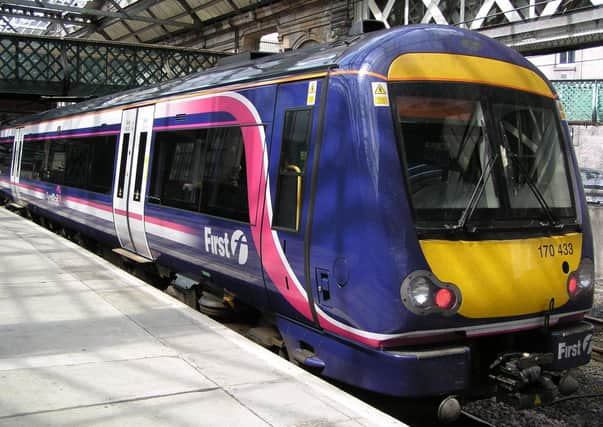Calls for major fares shake-up as rail prices rise despite pandemic


The cap on the annual rise in most regulated fares is linked to the previous July’s retail price index (RPI) measure of inflation, which was announced by the Office for National Statistics yesterday.
Rail fares are usually increased every January, although there is speculation that ministers are considering delaying the 2021 rise due to low passenger numbers.
Advertisement
Hide AdAdvertisement
Hide AdThe UK, Scottish and Welsh governments regulate rises for about half of fares, including season tickets on most commuter routes, some off-peak return tickets on long-distance journeys and tickets for travel around major cities at any time.
The increase means Edinburgh to Glasgow season ticket holders face a price rise of £67. Rail regulator the Office of Rail and Road said regulated fares went up by an average of 2.7 per cent in January this year, following the July 2019 RPI figure of 2.8 per cent.
Unregulated fares, including advance and peak long-distance tickets, can be increased at the discretion of train companies.
Passenger watchdog Transport Focus called for a major shake-up of rail fares to encourage passengers back to the railways following the collapse in demand caused by the coronavirus pandemic.
Chief executive Anthony Smith said a system that fits “the way we live and travel now” is needed, rather than “season tickets designed for City gents in the last century”.
He went on: “Our research tells us almost two in three former rail commuters expect to work from home more, so we will probably now travel less for work, both commuting and on business.
“The Government must go above and beyond a fares freeze and get train companies to offer a combination of cut-price deals, carnet-style ‘bundles’, flexible season tickets for commuters and better-value-for-money fares across the board.”
Department for Transport figures show car use has nearly returned to pre-pandemic levels but rail travel is below a third of what it was before the crisis, despite lockdown restrictions easing.
Advertisement
Hide AdAdvertisement
Hide AdAll revenue and cost risks from train companies were transferred to the UK, Scottish and Welsh governments in March to avoid franchises collapsing.
This has already cost taxpayers at least £3.5 billion.
The initial Emergency Measures Agreements (EMAs) offered by the UK Government last for six months but taxpayer-funded support is expected to continue.
Trade unions claim EMAs mean Britain’s railways are now in public ownership but that is disputed by the industry.
The Rail, Maritime and Transport (RMT) union called for fares to be cut by 5 per cent each year, using £500 million it says would otherwise be paid to private firms over a 12-month period if EMAs are extended. Assistant general secretary Mick Lynch said: “Tinkering with fares is simply not good enough.”
Rail minister Chris Heaton-Harris said: “We expect any rail fare rise to be the lowest in four years come January and any increase will go straight to ensuring crucial investment in our railways.
“Taxpayers have been very generous in their support to keep trains running throughout the coronavirus pandemic and whilst it’s only fair that passengers also contribute to maintaining and improving the services they use, a lower rise will help ensure the system returns to strength.”
Industry body the Rail Delivery Group said it was working with the UK Government to offer flexible season tickets.
The Government was warned by union chiefs that more passengers would be priced off the railways if fares rose again.
Advertisement
Hide AdAdvertisement
Hide AdMinisters were told there should not be any price rise, especially as the industry continues to suffer from a huge fall in the number of people travelling by train because of the virus crisis.
Manuel Cortes, general secretary of the Transport Salaried Staffs Association, said: “There should be no planned increase in rail fares. Doing so in the middle of a health emergency and emerging economic crisis will help no one.
“Since the pandemic, our railways have kept key workers and vital supplies moving. There can be no doubt how vital our rail infrastructure is for the wellbeing of our nation and for our efforts to decarbonise our economy.
“With that in mind, our industry needs a new start which puts passengers not profits first.”
Labour compared the costs on more than 180 train routes between when the Conservatives came to power and the projected new prices, saying the average commuter will now be paying £3,113 for their season ticket, which is £919 or 42 per cent more than in 2010.
Average fares have risen two-and-a-half times faster than wages, it was suggested.
Shadow transport secretary Jim McMahon said: “Decisions taken by Government ministers are making rail travel unaffordable and discouraging people [from getting] back on to the network.”
Comments
Want to join the conversation? Please or to comment on this article.